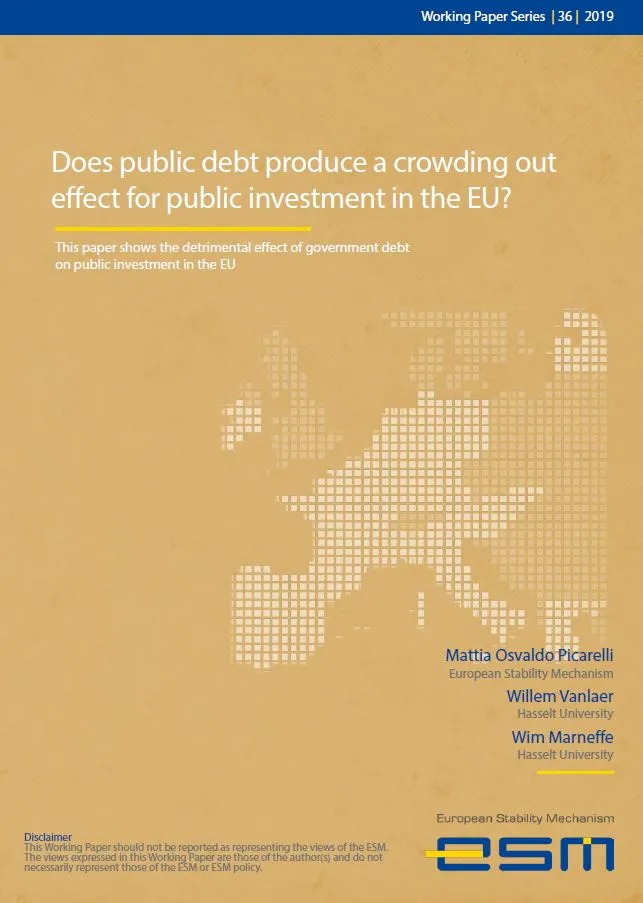Does Public Debt Produce a Crowding Out Effect for Public Investment in the EU?

Download PDF: Working Paper 36
This paper shows the detrimental effect of government debt on public investment in the EU
Authors: Mattia Osvaldo Picarelli (European Stability Mechanism), Willem Vanlaer (Hasselt University), Wim Marneffe (Hasselt University)
Abstract:
This paper exploits a panel dataset for 26 EU countries, between 1995 and 2015, to examine the extent to which increased levels of public debt have led to reduced public investment, the so-called ‘debt overhang’ hypothesis. To address endogeneity concerns, we use an instrumental variable approach based on a GMM estimation. Our results validate the debt overhang hypothesis and remain robust across various estimation techniques. The GMM specification with year dummies indicates that a 1% increase in public debt in the EU brings about a reduction in public investment of 0.03%. Moreover, we find evidence that: 1) the results are mainly driven by high-debt countries; 2) the negative impact of debt on investment is slightly smaller in the Eurozone than in the entire EU; 3) both the stock and flow of public debt play a role in reducing public investment with the impact of the latter that is found to be more profound.
Disclaimer: This Working Paper should not be reported as representing the views of the ESM. The views expressed in this Working Paper are those of the author(s) and do not necessarily represent those of the ESM or ESM policy. No responsibility or liability is accepted by the ESM in relation to the accuracy or completeness of the information, including any data sets, presented in this Working Paper.
Keywords: public investment, debt overhang, credit rationing
JEL codes: E22, F34